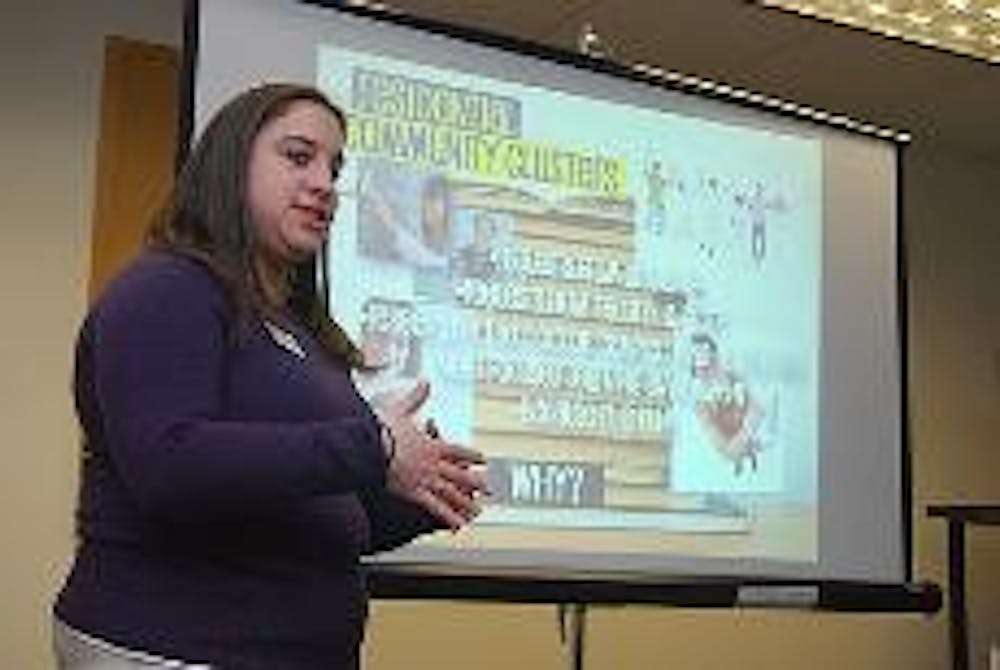Housing and Dining Programs will pilot a new living and learning community program called Residential Community Clusters, which will start during the fall 2008 semester.
The clusters will be student-led groups of at least six students who share a common interest, such as community service or environment sustainability, and will create programming based on a central theme. One or two volunteer resident coordinators will lead each cluster, Centennial Hall Resident Director Leah Kreimer said during a presentation Wednesday.
The program will be similar to the University College program, an existing living-and-learning community program, but different from UC because each cluster will be completely student-run and does not tie in to any specific class. However, each cluster will have a faculty or staff adviser, Kreimer said
"You need an adviser, someone who works or teaches at AU," she said. "It has to be someone who has knowledge or expertise in whatever topic area you choose to create your RCC around."
Additionally, each proposal needs to have a curriculum and proposed programming for the cluster, Kreimer said.
"RCCs provide out-of-classroom collaborative learning opportunities," she said.
Director of Residence Life Rick Treter said Housing and Dining created the program based on feedback from students.
"One reason [the program was created] was based on feedback that I've received from students that would like to have learning communities, but they would like to have learning communities that they have a part of designing," he said.
Treter said he also got feedback from Housing and Dining staff members, who also helped to generate the original idea.
"The actual idea of Residential Community Clusters was brought on by a variety of team members of Housing and Dining, and has really been put together by myself and the resident directors and the leadership team within Housing and Dining," he said. "It crosses a wide variety of boundaries."
Each cluster proposal includes a request for a preferred living environment. However, Kreimer said there are "no guarantees" about residence hall requests. Additionally, Nebraska Hall will not be a part of the program at least during the pilot year, Kreimer said.
Spaces for RCCs will be determined after all rooms are squatted but before the general room draw at the end of March, Treter said.
"It doesn't affect [room draw] at all because it's in between that particular process, and we only identify spaces that individuals have not squatted already in the particular process," he said.
Six or seven students have approached Treter indicating that they would like to begin writing proposals. He said he would be happy with two to four clusters during the pilot program.
Each proposal will go before a review committee between Feb. 25 and Feb. 28. Treter said the committee would be diverse.
"It'd be a combination of faculty, staff and student leaders that all understand the concept of a learning community and what that would mean for the university," he said.
Kreimer said proposals are due Feb. 21. According to the RCC application, which is available on the Housing and Dining Web site, the committee's decisions will be available online Feb. 29.





